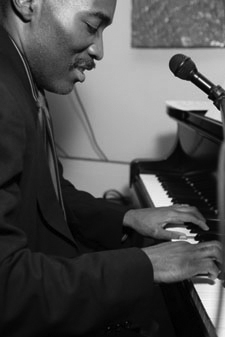Allen Toussaint, the ever-elegant New Orleans performer, producer and composer of such R&B classics as “Working in the Coal Mine,” “Mother-in-Law,” “It’s Raining” and “Southern Nights,” died Tuesday (Nov. 10), while on tour in Madrid. He was 77 years old.
Fans have reason to be shocked by the news because tickets went on sale just days ago for a concert featuring Mr. Toussaint and fellow composer and performer Paul Simon at Le Petit Theatre du Vieux Carre in New Orleans on Dec. 8. The event was to benefit the New Orleans Artists Against Hunger and Homelessness charity organization, which Mr. Toussaint co-founded in 1985.
Considered by many to be the dean of the New Orleans music scene, having influenced the careers of countless musicians and performers, Mr. Toussaint gave his last performance on Monday at Madrid’s Teatro Lara. Madrid emergency services spokesman Javier Ayuso said rescue workers were called to Mr. Toussaint’s hotel early Tuesday morning and managed to revive him after he suffered a heart attack. But Ayuso said Mr. Toussaint stopped breathing during the ambulance ride to a hospital and efforts to revive him again were unsuccessful.
Mr. Toussaint, who helped to define the New Orleans sound as a songwriter and composer, was inducted into the Rock and Roll Hall of Fame in 1988, the Louisiana Music Hall of Fame in 2009, and the Blues Hall of Fame in 2011. In 2013, he received the National Medal of Arts from President Barack Obama.
“He was like a one man Motown,” said Quint Davis, president of Festival Productions Inc.-New Orleans and the producer and director of the New Orleans Jazz & Heritage Festival, at which Mr. Toussaint regularly performed. “There was that period of time with Ernie K-Doe, Benny Spellman, Lee Dorsey and Irma Thomas where he wrote, produced, played on a whole era of New Orleans music, a lot of which went national.
“He was all of those things, a composer, a songwriter, an instrumentalist, a vocalist, a studio producer — brilliant. And in last few years, he really adopted playing live for people.”
Despite international renown, Mr. Toussaint was a regular sight in the Mid-City and Gentilly neighborhoods in years past. He was known for his stately posture, unhurried speech, elegant suits, sandals with socks, and a Rolls Royce marked with license plates that read “Piano” and “Tunes.”
“He was his own living art form, the way he dressed, like somebody from another era, century, always had some incredible combination of jacket and shirt and tie,” Davis said of Mr. Toussaint’s personal style. “Always. He was a living piece of art. The tie and the shirt was a poem every time.”
Mr. Toussaint was born in 1938 in the Gert Town neighborhood, to Clarence Toussaint and Naomi Neville. By his mid-teens, he was honing his driving, dancing piano style as he stepped into the New Orleans R&B nightclub scene. New Orleans musical lore has it that Mr. Toussaint substituted for Huey “Piano” Smith at a performance with Earl King’s band when he was a mere 17 years old.
The consummate composer, arranger and accompanist, Mr. Toussaint spent most of the 1960s behind the scenes at Minit Records and other recording companies. New Orleans and national performers made a string of his tunes famous.
The Irma Thomas ballad “It’s Raining” was composed by Mr. Toussaint under his mother’s name. He wrote Ernie K-Doe’s Billboard chart-topping song “Mother-in-Law,” Lee Dorsey’s “Working in the Coal Mine,” and Benny Spellman’s “Fortune Teller.”
“One thing I can say about him, is he helped a lot of people in this town,” said New Orleans singer and guitarist Deacon John Moore. “He was a scholar and gentleman. I don’t know where they would be if he hadn’t written those songs. I see him and I say, ‘I can never thank you enough for making me a part of rhythm and blues history. That’s something they can’t take away from me.'”
Moore affectionately recalls that, even at an early age, Mr. Toussaint was well aware of his image.
“He had a tomato-red Cadillac convertible, double parked outside of the Dew Drop inn” Moore said. “He was rather flamboyant. He was a real sharp dresser, always Mr. GQ, with nice clothes, expensive clothes.”
Mr. Toussaint took a hiatus from his burgeoning career in 1963 to serve in the armed forces, but his momentum was uninterrupted. In 1964, trumpet maestro Al Hirt covered Toussaint’s jaunty instrumental “Java,” which became a No. 1 hit. In 1965, Mr. Toussaint’s “Whipped Cream” not only became the title track on a Herb Alpert and the Tijuana Brass album, it later became the bachelorettes theme of the television game show “The Dating Game.”
The 1970s saw the emergence of the singer-songwriter, and Mr. Toussaint stepped into the spotlight with two solo albums “From a Whisper to a Scream” and “Southern Nights,” which showcased his mellow, whispered vocals and keyboard command. The records were marvelous though little heard by mainstream music lovers. Some of the songs, however, became hits when covered by pop stars, including Mr. Toussaint’s strange, psychedelic “Southern Nights,” which became a country rock anthem when recorded by Glen Campbell. Mr. Toussaint’s plangent “What Do You Want the Girl to Do” became a rollicking finger-snapper for Boz Scaggs.
Originally published on nola.com


 Born in 1962 in Philadelphia, Darrell Grant moved to Denver as a young child. Starting piano lessons before his teens, Grant was a prodigy and at the age of 15 joined the Boulder, CO-based Pearl Street Jazz Band, a young but internationally renowned traditional New Orleans-style combo. Pearl Street Jazz Band toured worldwide and Grant was with the group for two years.
Born in 1962 in Philadelphia, Darrell Grant moved to Denver as a young child. Starting piano lessons before his teens, Grant was a prodigy and at the age of 15 joined the Boulder, CO-based Pearl Street Jazz Band, a young but internationally renowned traditional New Orleans-style combo. Pearl Street Jazz Band toured worldwide and Grant was with the group for two years. His first release, 1994’s Black Art was well-reviewed and sold respectably, and the following year’s The New Bop was an even bigger critical success.
His first release, 1994’s Black Art was well-reviewed and sold respectably, and the following year’s The New Bop was an even bigger critical success.